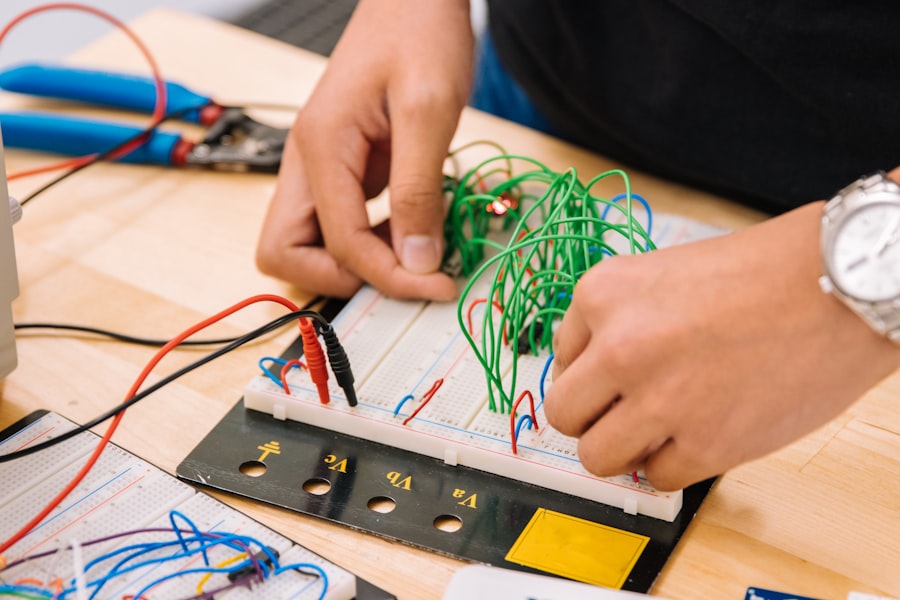Conflict is an inherent aspect of human interaction that can arise in various contexts where differing opinions, values, or needs exist. It can occur in personal relationships, professional settings, or on a global scale. Understanding conflict’s nature is crucial for effective management and resolution.
Conflict manifests in multiple forms, including verbal disagreements, physical confrontations, or unspoken tension. Its origins can be diverse, such as misunderstandings, resource competition, or power dynamics. Identifying the underlying causes of conflict is essential for addressing root issues and developing sustainable solutions.
Conflict can produce both positive and negative outcomes. Positive effects may include personal growth, innovation, and constructive change. Negative consequences can involve stress, relationship damage, and reduced productivity.
Recognizing the potential results of conflict enables individuals to approach it with a balanced perspective and work towards constructive resolutions. By acknowledging conflict’s complexity and impact, people can develop more nuanced strategies for managing and resolving disputes.
Key Takeaways
- Conflict is a natural part of human interaction and can be managed effectively.
- Effective communication skills are essential for resolving conflicts and preventing escalation.
- Managing emotions is crucial in conflict resolution to maintain a calm and rational approach.
- Active listening is a powerful tool for understanding the perspectives of others in a conflict.
- Cultivating empathy and understanding can help in finding common ground and resolving conflicts peacefully.
- Seeking compromise and collaboration can lead to mutually beneficial solutions in conflict resolution.
- Implementing conflict resolution strategies can help in addressing conflicts in a constructive and positive manner.
Developing Effective Communication Skills
Creating an Environment for Conflict Resolution
Clear and respectful communication can create an environment where conflicting parties feel heard and understood, which is essential for finding common ground and reaching resolutions. Effective communication involves not only verbal cues but also nonverbal signals such as body language and tone of voice, which can significantly impact how a message is received and interpreted.
The Importance of Nonverbal Communication
Being mindful of nonverbal communication can help individuals convey their intentions accurately and empathetically. By paying attention to nonverbal cues, individuals can ensure that their message is conveyed effectively and avoid misinterpretation.
Active Listening: A Crucial Component of Effective Communication
Active listening is a crucial component of effective communication, involving fully concentrating, understanding, responding, and remembering what is being said. By actively listening to others, individuals can demonstrate empathy and create a space for open and honest dialogue, ultimately leading to more effective conflict resolution.
Learning to Manage Emotions

Emotions play a significant role in conflict, often influencing how individuals perceive and respond to a situation. Learning to manage emotions is essential in navigating conflict constructively. When emotions are left unchecked, they can escalate a conflict and hinder rational decision-making.
By developing emotional intelligence, individuals can recognize their own emotions and those of others, understand their impact, and effectively manage them. Moreover, managing emotions involves regulating one’s own emotional responses and empathizing with the emotions of others. This can be achieved through techniques such as deep breathing, mindfulness, and reframing negative thoughts.
By learning to manage emotions, individuals can approach conflict with a calm and rational mindset, which is essential for finding mutually beneficial solutions.
Practicing Active Listening
Active listening is a critical skill in conflict resolution that involves fully concentrating on what is being said rather than passively hearing the words. It requires individuals to pay attention to both verbal and nonverbal cues, understand the speaker’s perspective, and provide feedback that demonstrates understanding. Practicing active listening can help build trust, foster empathy, and create an environment where conflicting parties feel valued and respected.
Furthermore, active listening involves asking clarifying questions and summarizing the speaker’s points to ensure accurate understanding. This not only helps individuals gain insight into the other party’s perspective but also encourages open and honest communication. By practicing active listening, individuals can create a foundation for constructive dialogue and collaboration in resolving conflicts.
Cultivating Empathy and Understanding
Empathy is the ability to understand and share the feelings of another person. Cultivating empathy is essential in conflict resolution as it allows individuals to see a situation from the perspective of others, even if they do not agree with it. Empathy can help bridge the gap between conflicting parties by fostering understanding and compassion.
Moreover, empathy involves active engagement with the emotions and experiences of others. It requires individuals to listen attentively, acknowledge the validity of others’ feelings, and respond with sensitivity. By cultivating empathy, individuals can create an environment where conflicting parties feel heard and respected, which is essential for finding common ground and reaching resolutions.
Seeking Compromise and Collaboration

The Art of Compromise
Compromise involves both parties making concessions to reach an agreement that meets the needs of all involved. It demands open-mindedness, flexibility, and a willingness to find common ground. By being open to compromise, parties can find creative solutions that satisfy their interests and needs.
The Power of Collaboration
Collaboration involves working together towards a shared goal. It requires individuals to communicate effectively, actively listen to each other’s perspectives, and brainstorm creative solutions. Through collaboration, parties can pool their resources, expertise, and knowledge to find innovative solutions that benefit everyone.
Reaching Sustainable Resolutions
By seeking compromise and collaboration, conflicting parties can find mutually beneficial solutions that address the root causes of the conflict. This approach enables parties to build trust, strengthen relationships, and create a foundation for long-term cooperation.
Implementing Conflict Resolution Strategies
Implementing conflict resolution strategies involves applying specific techniques to address and resolve conflicts effectively. These strategies may include negotiation, mediation, or arbitration, depending on the nature of the conflict and the parties involved. Negotiation involves discussing issues to reach a mutually acceptable agreement, while mediation involves a neutral third party facilitating communication between conflicting parties to help them reach a resolution.
Moreover, arbitration involves a neutral third party making a decision on behalf of conflicting parties based on evidence presented. By implementing conflict resolution strategies, individuals can navigate conflicts with a structured approach that promotes fairness, understanding, and sustainable solutions. In conclusion, conflict is an inevitable part of human interaction that requires careful management and resolution.
By understanding the nature of conflict, developing effective communication skills, learning to manage emotions, practicing active listening, cultivating empathy and understanding, seeking compromise and collaboration, and implementing conflict resolution strategies, individuals can navigate conflicts constructively and find sustainable resolutions that promote positive change and growth.
If you’re looking to improve your conflict resolution skills in the workplace, it’s also important to focus on networking and building strong professional relationships. Networking can help you navigate workplace conflicts more effectively by providing you with a support system and potential mentors who can offer guidance. Check out this article on networking for more tips on how to build a strong professional network and improve your conflict resolution skills.
FAQs
What are conflict resolution skills?
Conflict resolution skills are the ability to handle and resolve conflicts in a constructive and positive manner. These skills involve effective communication, active listening, empathy, and the ability to find mutually beneficial solutions.
Why are conflict resolution skills important?
Conflict resolution skills are important because they help individuals and teams to navigate disagreements and disputes in a way that minimizes negative impact and promotes positive outcomes. These skills are essential for maintaining healthy relationships, both personally and professionally.
How can I improve my conflict resolution skills?
You can improve your conflict resolution skills by practicing active listening, developing empathy, learning effective communication techniques, and seeking out training or resources on conflict resolution. It’s also helpful to reflect on past conflicts and identify areas for improvement.
What are some common techniques for resolving conflicts?
Common techniques for resolving conflicts include active listening, assertive communication, finding common ground, seeking compromise, and using problem-solving strategies. It’s also important to remain calm and respectful during conflict resolution.
What are the benefits of improving conflict resolution skills?
Improving conflict resolution skills can lead to better relationships, increased productivity, reduced stress, and a more positive work or social environment. It can also lead to greater personal growth and development.



